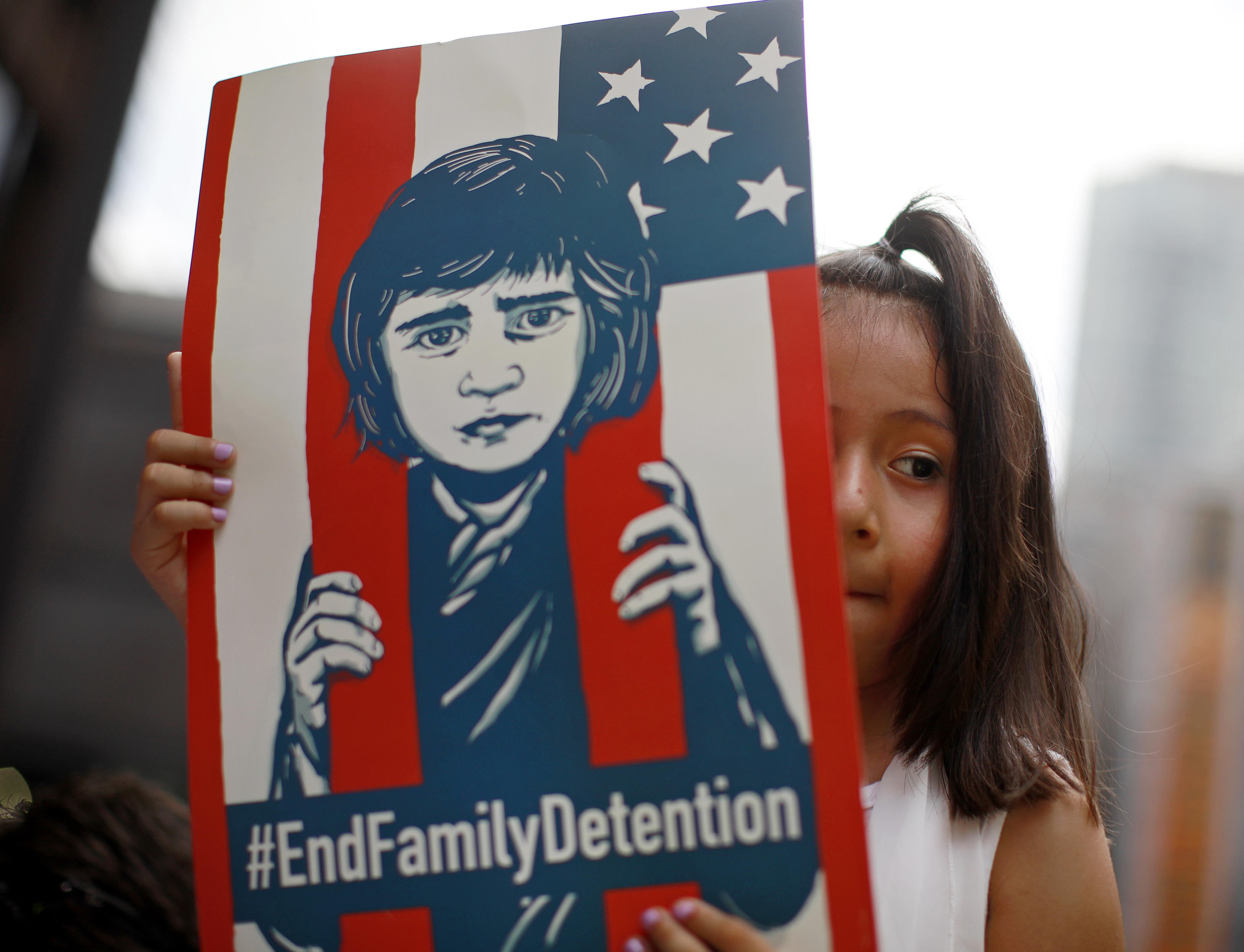US court deadline looms for family reunification
A girl takes part in a protest in Chicago against the separation of migrant families (JIM YOUNG)
Washington (AFP) – Hundreds of immigrant parents and children separated at the US-Mexico border were in limbo Thursday as a court-set deadline for family reunification was set to expire.
A federal judge in California, Dana Sabraw, has ordered that all eligible migrant families be brought back together by 6:00 pm (2200 GMT) on Thursday.
But government lawyers acknowledged in court this week that not everyone will have been reunited by that time.
The controversial separations began in earnest in May under President Donald Trump’s “zero tolerance” policy when migrants illegally entering the United States were detained en masse, and their children taken to shelters as a result.
The policy triggered protests in the US and abroad, especially after the release of audio of small children in shelters crying for their parents, many of whom fled turmoil and gang violence in Central America.
An about-face from the Republican leader six weeks later led to hundreds of reunions, but the pace has been slow — children and their parents are being housed in different parts of the country, and some adults have been deported.
Homeland Security Secretary Kirstjen Nielsen said Tuesday the government intended to “reunify all families that are suitable.”
Nielsen told Fox News her department was “working hand in glove” with the Department of Health and Human Services, which operates shelters all over the country where the kids — some toddlers or even infants — were sent.
The government has identified 2,551 children ages five to 17 potentially covered by the order, and said that 1,634 families are expected to be reunited by the deadline.
– 917 ‘ineligible case’ –
The remaining 917 fall into the category of “ineligible cases” — meaning children cannot be reunited because family ties cannot be confirmed, or the parent has a criminal record, a communicable disease or cannot be found.
And of that number, government data indicates that more than 460 parents may already have been deported, some of them voluntarily — enormously complicating any possible reunion with their children.
“The other 917 — including the 463 who may not be in the US now — will not be reunited before the deadline, and it’s up to Judge Sabraw to decide whether that is OK,” said Adam Isacson, from the Washington Office on Latin America, a non-governmental research group.
Asked how the government will return children to parents who have been deported, Nielsen answered: “If the parents contact us that they would like to be reunited, of course we’ll work with them.”
But finding these parents in Mexico or Central America will be a long, painstaking task, said Stephen Kang, an attorney with the American Civil Liberties Union, which had filed suit against the administration to demand separated families be brought back together.
A month ago, Sabraw ordered the government to return children under the age of five to their parents by July 10 and those between five and 17 by Thursday.
The government missed the first deadline. It deemed 45 children ineligible for return because their parents were not fit or able to take them.
As of Tuesday, the Department of Health and Human Services had in its custody, in shelters around the country, 11,500 children classified as Unaccompanied Alien Children, or UACs.
That figure includes kids and adolescents who traveled to the United States without an adult.
But it also takes into account children who crossed over with their families, were separated from them and then reclassified as UACs when they were sent to shelters.
As of July 16, Immigration and Customs Enforcement had in its custody 44,210 adult immigrants.
Disclaimer: This story has not been edited by Siliconeer and is published from a syndicated feed. Siliconeer does not assume any liability for the above story. Validity of the above story is for 7 Days from original date of publishing. Content copyright AFP.


